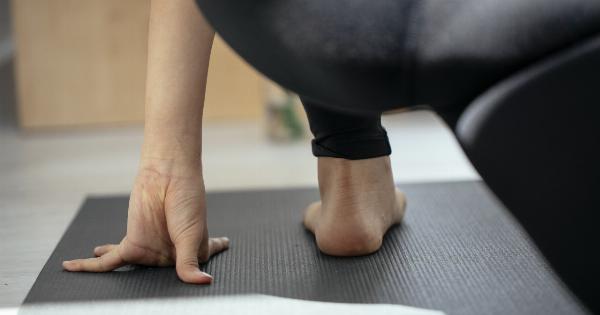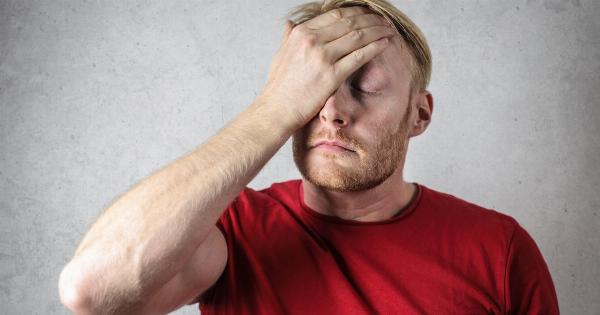Headaches are one of the most common ailments that people experience. Whether it’s the occasional tension headache or a debilitating migraine, chances are you’ve experienced this unpleasant sensation at some point in your life.
But how much do you really know about headaches? Take this quiz to test your knowledge and learn some interesting facts along the way!.
1. What is the most common type of headache?
The answer is tension headache. Tension headaches are often described as a dull, aching pain that can wrap around your entire head. They are usually caused by stress, anxiety, or muscle tension and can last for several hours.
2. True or False: Migraine headaches are more common in men than in women.
False. Migraines are actually more common in women, affecting about 18% of women in the United States compared to 6% of men.
Migraines are characterized by severe, throbbing pain on one side of the head, along with other symptoms like nausea and sensitivity to light and sound.
3. Cluster headaches got their name because:
a) They often occur in clusters, with frequent attacks over a period of time.
b) They are associated with specific geographic clusters.
c) They are often triggered by eating clusters of grapes.
d) They are named after a fictional cluster of stars.
The correct answer is a) They often occur in clusters, with frequent attacks over a period of time. Cluster headaches are known for their pattern of occurring in clusters, which can last for weeks or months.
They are excruciatingly painful and often centered around one eye.
4. What is the average duration of a tension headache?
a) Few minutes.
b) Few hours.
c) Few days.
d) Few weeks.
The correct answer is b) Few hours. Tension headaches typically last for a few hours, although they can sometimes persist for up to a couple of days.
It’s important to manage stress and find ways to relax to prevent tension headaches from occurring.
5. Which of the following can be a trigger for migraines?
a) Bright lights.
b) Certain foods.
c) Hormonal changes.
d) All of the above.
The correct answer is d) All of the above.
Migraines can be triggered by various factors, including bright lights, certain foods (such as chocolate or cheese), hormonal changes (such as during menstruation), and even changes in weather or sleep patterns.
6. How many different types of headaches are currently recognized by the International Classification of Headache Disorders?
a) 5.
b) 10.
c) 15.
d) 20.
The correct answer is d) 20. The International Classification of Headache Disorders recognizes and categorizes 20 different types of headaches, each with its own unique characteristics and symptoms.
7. What is the recommended treatment for migraines?
a) Over-the-counter pain relievers.
b) Prescription medications.
c) Rest in a dark, quiet room.
d) All of the above.
The correct answer is d) All of the above. The treatment for migraines can vary depending on the severity and frequency of the attacks.
Over-the-counter pain relievers can help alleviate mild migraines, while prescription medications are available for more severe cases. Resting in a dark, quiet room can also provide relief during an attack.
8. Which of the following is NOT a common symptom of a sinus headache?
a) Facial pain or pressure.
b) Runny or stuffy nose.
c) Fever.
d) Toothache.
The correct answer is c) Fever. While facial pain or pressure, a runny or stuffy nose, and even a toothache are common symptoms of a sinus headache, fever is not typically associated with this type of headache.
9. Can caffeine consumption cause headaches?
a) Yes, it can trigger headaches in some individuals.
b) No, caffeine has no impact on headaches.
The correct answer is a) Yes, it can trigger headaches in some individuals. While caffeine can provide temporary relief for some people with headaches, it can also trigger or worsen headaches in others.
It’s essential to be mindful of your caffeine intake and how it affects you personally.
10. What is the best way to prevent tension headaches?
a) Regular exercise.
b) Maintaining good posture.
c) Managing stress levels.
d) All of the above.
The correct answer is d) All of the above. Regular exercise, maintaining good posture, and managing stress levels are all important in preventing tension headaches.
It’s crucial to take breaks and stretch if you have a sedentary lifestyle, practice relaxation techniques, and find healthy ways to cope with stress.
Conclusion
How did you fare on the headache knowledge quiz? Headaches might be a common occurrence, but there is always more to learn about them.
Remember, if you frequently experience severe headaches or migraines, it’s important to consult a healthcare professional for proper diagnosis and treatment.

























